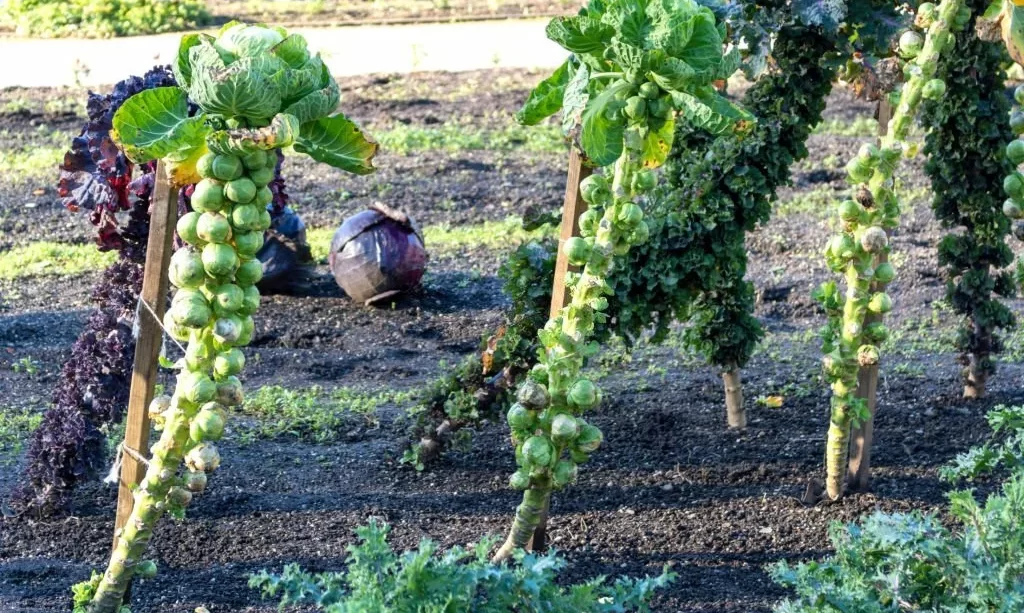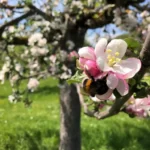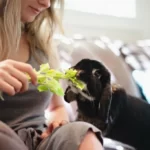In the vibrant world of gardening, the notion of companion planting has gained widespread popularity for its potential to transform the way we nurture our crops. Companion planting involves strategically placing plants next to one another to enhance their growth, improve yields, and protect them from pests. Among the many vegetables that benefit from these plant partnerships, Brussels sprouts stand out as a favorite in many gardens. This article explores the concept of companion planting in the context of Brussels sprouts, with a focus on selecting the ideal companions to boost their growth and productivity. What are the roles of these companion plants, and how can they contribute to the well-being of Brussels sprouts? As we delve into this green and leafy world, we aim to unveil the secrets of selecting beneficial companion plants for Brussels sprouts, enhancing their garden presence.
- Seed Balls help keep planting your vegetable garden simple. Contains 20 seed balls.
- Versatile Brussels Sprouts are healthy, as well as an interesting and easy-to-grow garden vegetable.
- New recipe for faster germination and superb seedling vitality.
- Seed Balls are a great way to introduce children to gardening- they are fun and manageable.
- Just press lightly into bare soil and keep moist until seedlings are established.
Role of Companion Plants
Companion planting is not a new concept but is a time-honored and ecologically sound approach to gardening. It centers on the idea that certain plants can complement and support each other when grown in close proximity. This can manifest in various ways, from enhanced growth and pest management to improved soil quality. The core principle is to create a harmonious plant community that replicates the diversity found in natural ecosystems.
When applied to Brussels sprouts, companion planting offers multiple advantages. Companions can act as protectors, helping deter pests that commonly plague Brussels sprouts. They can also enhance nutrient exchange by providing essential elements, such as nitrogen, which benefits the soil and, consequently, the growth of Brussels sprouts. As we explore the world of Brussels sprout companions, we’ll delve into these roles and understand the contributions that suitable plants can make to enhance the overall health and productivity of these delectable mini-cabbages.
Beneficial Companion Plants for Brussels Sprouts
Selecting the right companions for Brussels sprouts is a key consideration for garden success. Some plants can provide distinct advantages for these cool-season vegetables. Among the beneficial companions are those that serve as “trap crops,” luring away common pests that often target Brussels sprouts. These sacrificial plants help protect the precious sprouts from insect attacks. Additionally, nitrogen-fixing plants, such as legumes, can enhance soil quality by capturing atmospheric nitrogen and making it available to neighboring Brussels sprouts, thus improving their growth.
Some well-suited companions include aromatic herbs like thyme and sage, which can deter pests through their scents. Alliums like onions and garlic are also known to keep insect pests at bay. These plants create a harmonious and mutually beneficial environment in the garden, where each member plays a unique role. As we delve deeper into the world of beneficial companions for Brussels sprouts, we’ll explore these plant partnerships and unveil the potential benefits they offer in nurturing these garden favorites.
Pest-Repelling Companion Plants
One of the remarkable aspects of companion planting with Brussels sprouts is its ability to repel common garden pests naturally. By selecting specific plants with natural pest-repelling qualities, you can create a garden ecosystem that discourages unwanted visitors. For instance, the strong and pungent aroma of aromatic herbs like basil, rosemary, and oregano can deter pests such as aphids, cabbage moths, and whiteflies. Planting these herbs alongside Brussels sprouts can significantly reduce the risk of infestations.
Alliums, including garlic and chives, are also excellent choices. Their distinct smell helps keep pests at bay while adding flavor to your culinary endeavors. Nasturtiums, with their vibrant blooms, serve a dual purpose. Not only do they repel aphids and whiteflies, but their edible flowers can be a delightful addition to your salads. By incorporating these pest-repelling companions strategically, you create a fortified garden where Brussels sprouts can thrive while enjoying natural protection against common garden adversaries.
Planting Layout and Strategies
The layout and strategies for companion planting with Brussels sprouts are vital to ensuring the success of your garden. Here are some essential considerations:
- Intercropping: Interplant companion plants among your Brussels sprouts to maximize the benefits of their presence. A good rule of thumb is to alternate rows or create clusters of companions throughout the Brussels sprout bed.
- Border Planting: Create a protective border around your Brussels sprout patch with pest-repelling plants like aromatic herbs. This barrier can help deter insects before they reach your sprouts.
- Vertical Gardening: Consider using vertical gardening structures like trellises or cages for companion plants that vine or climb. This not only maximizes space but also provides shade and shelter to Brussels sprouts.
- Spacing: Pay attention to proper spacing between Brussels sprouts and companion plants. Overcrowding can lead to competition for resources and reduced airflow, potentially promoting disease. Adequate spacing is crucial for both Brussels sprouts and their companions.
Conclusion
Companion planting with Brussels sprouts offers a dynamic and natural approach to gardening that enhances the overall health and productivity of your garden. By selecting compatible plants with beneficial roles, you create a balanced and diverse ecosystem that mimics nature’s wisdom. Pest-repelling companions, such as aromatic herbs and alliums, naturally protect Brussels sprouts from common garden pests. Thoughtful planting layouts and strategies ensure that these companion plants fulfill their roles effectively.
As you embark on your journey of companion planting with Brussels sprouts, you not only foster a thriving garden but also cultivate a deeper appreciation for the intricate relationships between plants in your care. By implementing these strategies, you create a garden that thrives on cooperation, harmonizing with nature’s design. Your Brussels sprouts, surrounded by their compatible companions, will flourish, and your garden will become a testament to the wonders of companion planting.





